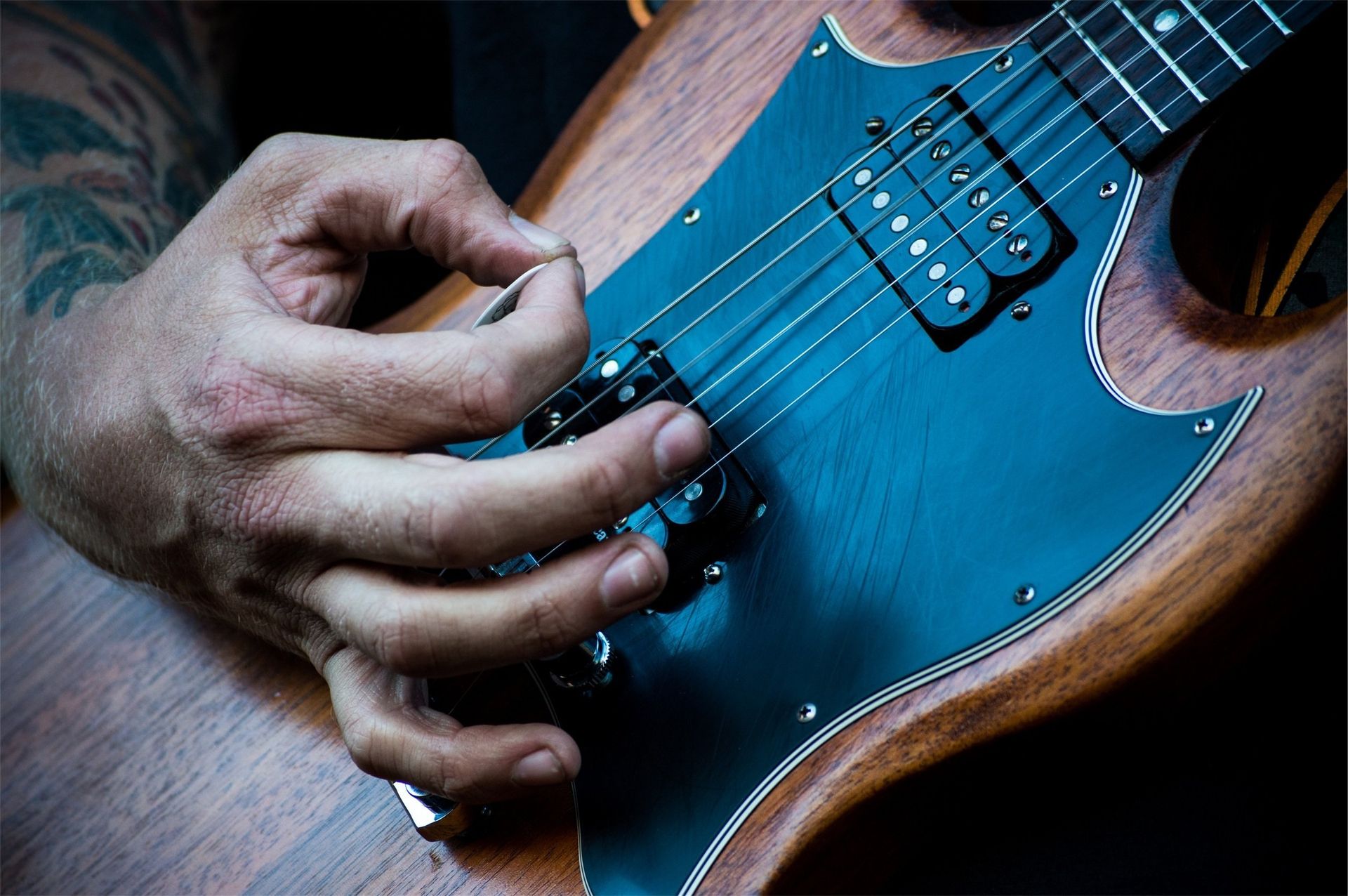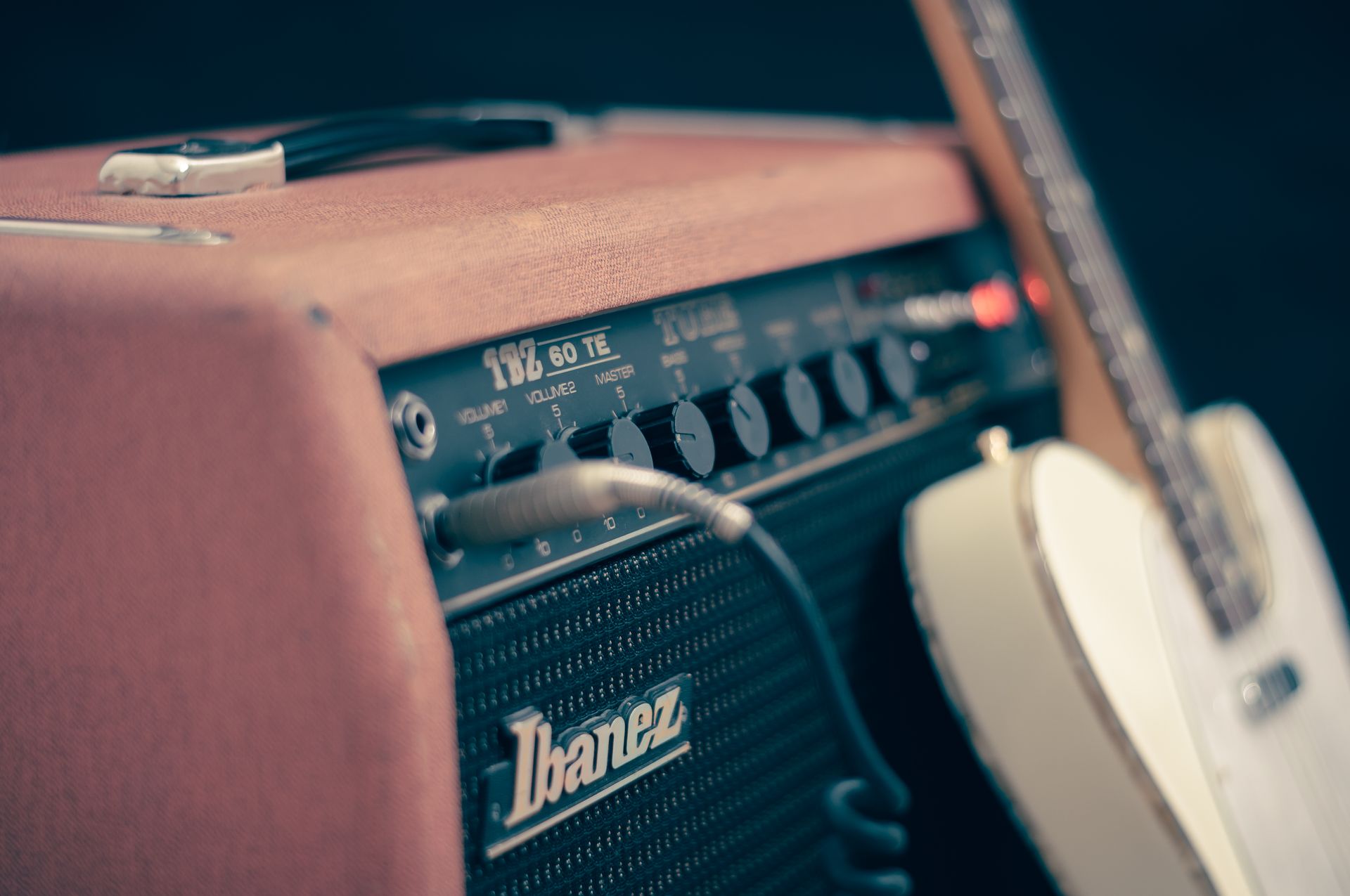Limited Practice Time? Make The Most of It With These Two Simple Tricks

How to Learn 5-10x Faster With Two Simple Practice Tricks
Introduction
Every guitar player wishes they had more time to practice. With work/school, social events and obligations, family, and other time-taking obstacles in our way, it can be difficult to find the time you need in order to learn guitar fast and easily.
Many guitar teachers recommend making guitar a higher priority and removing other things from your life to put more time into practising – but not everyone wants to make lifestyle changes like these. Lots of players have too many other commitments to devote a lot of time to guitar, so it’s vital to learn how to spend your time more effectively.
Even if you have an open schedule and can spend hours every day practising, it’s still important to find out how to spend that time. Doing this will allow you to learn much, much faster and get far more progress.
In this article you’ll learn about two key concepts: the Pareto Principle (also known as the 80/20 rule) and Parkinson’s Law. You’ll learn all about what they are and how to apply them to your playing, with lots of examples to help you understand. It’s not an exaggeration to say that if you’ve never applied these concepts before, you could progress 5-10x faster than you are now (yes, they really do work that well)!
Pareto’s Law – How to Halve Your Practice Time and Triple Your Results
Back when I was learning to sweep pick, I used to practice dozens of different arpeggio shapes and sweeping patterns. I used to play them all together and practice lots of different shapes at the same time.
Then, after weeks and months of little to no practice I decided to change strategy. I decided to focus on just one three string shape. I cut my practice time down to a quarter of what it was before (15 minutes per day as opposed to one hour) and decided that instead of practising 10-20 different licks, I’d just focus on this one A-minor shape.
What happened? Within three days I got more progress than I had in the previous two months combined. I could play that shape fast! Within a week I’d gotten it clean and even faster, and I couldn’t believe how different my results were. I was practising less (FAR less!) and getting MORE results. What?!
It was great. Why did this happen? Well, it’s all down to focus. Instead of practising loads of different things at a time and not really progressing on any of them, I decided to focus on just the one thing that would get me the most results. This enabled me to play better and save practice time – something that I’d never been able to do before.
The Pareto Principle, or the “80/20” rule is one of the most famous productivity tools in the world. The basic idea is that 80% of your results come from just 20% of your efforts – so, in my case, my results were coming mainly from specific licks that focused on specific skills (such as the three string A-minor arpeggio above) while the rest of the patterns that I practised weren’t giving me much progress at all.

"Within three days I got more progress than I had in the previous two months combined"
Pareto was an Italian who first discovered it by noticing that the richest 20% of people in society owned 80% of the money. He then applied it to other contexts, and noticed that the 80/20 principle was everywhere. 20% of his pea plants produced 80% of the peas, while the majority of the plants (the other 80%) didn’t produce many peas at all. Sometimes the ratio is a little different (90/10, or 95/5, for instance) but the concept is still at work.
So then, what does this mean for you? Well, if you can figure out which 20% of your guitar practice gets you the majority of your results, you can focus specifically on that and get loads more progress. You could cut your practice time down to a fifth of what it was and just focus on that 20%, and still get nearly the same results as you were before. Or, you could keep practising the same amount but decide to only focus on the most effective 20% of exercises – think about how much progress you’d get then! You could progress 4-5x faster simply by focusing differently.
Break down your different practice areas (learning songs, speed practice etc.) and find out what gets you the most results. This might take a little bit of playing around to really figure out which exercises are the best. Then, focus only on the most effective things in each area!
Let’s say, for instance, I was a pop guitar player who practised learning different scales. The book I was reading might tell me that in order to become a well-rounded player, I’d have to learn all sorts of different scales like the Lydian mode and the Phrygian dominant scale.
But really, if I was a pop player, I’d never use those – 90%+ of the time I’d be using the major scale and the minor scale! If I just focused all of my time on mastering those instead, and forgot about all of the other patterns that I’d rarely use, my progress would go through the roof. Instead of learning an obscure scale that I’d use 1% of the time, I’d learn how to better use the major scale to write melodies, which I’d use 60-70% of the time – therefore making my practice time 60-70 times more effective!
See how great this is when you apply it? I’d recommend doing a sweep (no pun intended) through everything you do on guitar to find out what gets you the most results. Then, focus on those things and see how much more effective you are!
Parkinson’s Law - How to Do Four Hours Practice in Thirty Minutes
Ever had a last minute essay to do at school that you completely forgot about, or a last-minute piece of work that needs doing for your boss? A piece that would really suit having five hours spent on it rather than the thirty minutes you’ve got?
We’ve all been in situations where, for some reason or another, we’ve got far less time to spend on an activity than we need. The deadline is tight, and we need to focus on just the essentials if we’re going to get things done. Yes, those extra paragraphs about semi-related topics might be good, but if you’ve barely got any time then you need to knuckle down and focus on just the absolute core of the work.
But somehow, we always seem to get it done. Even when we’ve got far less time than we think we need, we still seem to pull together something decent. Thirty minutes is suddenly enough, you realise, as you finally manage to hand in the work on time.
"The work will expand to fill the time allotted to it"
This is because of something known as Parkinson’s Law – “the work will expand to fill the time allotted to it”. This means that if you’ve got six hours to do something – let’s use the example of an essay – you’ll use six hours. You’ll do research, maybe do a few different drafts, and add in extra information that’s good but doesn’t necessarily answer the question. You’d struggle to concentrate for that long as well, so you’d take breaks and daydream, and spend lots of time doing things that aren’t necessary.
And if you’ve got sixty minutes? That’s what you’ll use. A quick plan, then straight into writing! You’ve only got time for the bare essentials, so that’s what you’ll do. The essay will be laser-focused on the question, with every single sentence contributing to answering the question; no time for extra unnecessary fluff! By the end of that one hour you’ll have a finished essay.
Now, which will be better? The six hour one, right? Maybe, but I’d be willing to bet money on the fact that the one-hour essay would be better. It’s focused exactly on the question at hand and answers it precisely and succinctly without bombarding the reader with extra information that isn’t relevant or interesting. Words aren’t there for the sake of pushing up the word count – they’re there to communicate the message quickly and effectively. The essay is more streamlined and every piece of information is vital, making the message clearer because it isn’t hidden behind extra info.
Because you’ve been under time pressure, you’ve only had time to do what’s absolutely necessary. You’ve completed the work in 1/6th of the time, and what you’ve done is just as good (if not better) than if you’ve spent longer on it because you haven’t invented a load of extra work for yourself. You can apply this to guitar, too, and in combination with the 80/20 rule it’s a game changer.
Let’s say you’ve got half an hour to practice your scales. How about adding your own time constraint on that and seeing if you can do it in just ten minutes? What would you focus on to make sure you still get progress? Well, you’d use the 80/20 rule on your scale practice and then focus on the small percentage of scale patterns that would be most useful for you. Because of the added time pressure (Parkinson’s Law, reducing 30 minutes into 10) you’d focus and make every minute count without wasting any time, making your practice even more effective. Every single thing you cover in that ten minute session would be super useful and super effective because of the application of these two simple rules.
Then, you’ve got the same results as before but in 1/3 of the time. You’ve gained an extra twenty minutes that you can use to do something more fun or more useful, like learning your favourite guitar solo or song. This is all because you decided to reduce the time you allot to a certain activity, meaning that you haven’t got time to mess around – every minute counts.
Notice that I’m not saying practice less. I’m saying that you should put specific time constraints on everything you do to ensure that you focus and make the most of every minute you’ve got. In the example above, for instance, you’re spending 1/3 of the time you were before practising scales but you’re still getting the same results. You’ve gained an extra twenty minutes to spend on another area of your guitar playing, but your scale practice isn’t suffering either. It’s win-win!
Final Thoughts
Apply these two principles every time you practice the guitar and you could skyrocket your progress. Combine them and see how much faster you learn when you decide to use the 80/20 rule and Parkinson’s Law!
No need to limit yourself to just guitar, either; see how many other areas of your life you could make more efficient by using these two simple tricks.
Have fun, and keep playing!
